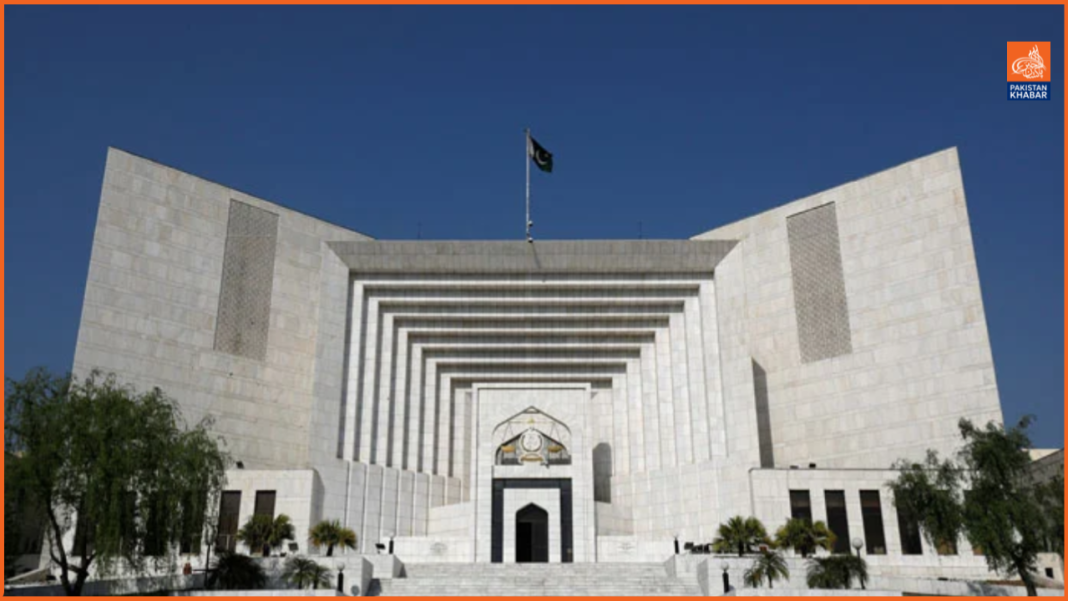The Supreme Court of Pakistan has released a comprehensive 70-page ruling, declaring the Election Commission of Pakistan’s (ECP) decision on reserved seats unconstitutional. The judgment, authored by Justice Mansoor Ali Shah, also overturned a previous ruling from the Peshawar High Court (PHC), affirming that the reserved seats should be allocated to the Pakistan Tehreek-e-Insaf (PTI) party.
This decision was reached by an 8-5 majority in a full bench led by Chief Justice Qazi Faez Isa. Dissenting judges, including Justices Yahya Afridi, Aminuddin Khan, Jamal Khan Mandokhail, and Naeem Akhtar Afghan, stressed the significance of proportional representation. The ruling follows an earlier verdict from July 12 and provides significant relief to PTI by restoring its claim to the reserved seats.
The court emphasized that PTI, as a political party, had the right to be represented in this matter and raised concerns about the number of independent candidates succeeding in a parliamentary democracy, noting that many independents were actually PTI candidates.
Additionally, the Supreme Court ruled against the ECP’s decision to deny PTI its election symbol, reinstating the party’s right to contest elections under its banner. The court deemed the ECP’s actions unlawful, asserting that the fundamental rights of both the electorate and political parties should be safeguarded.
The ruling criticized the ECP for failing to uphold democratic processes during the February 2024 elections, highlighting that electoral disputes directly impact the public’s stake, distinguishing them from typical civil cases.
This judgment effectively nullifies the ECP’s March 1 decision and the PHC’s endorsement, affirming that the reserved seats must be awarded to PTI. Previously, the ECP and PHC decisions had allowed the ruling coalition of PML-N and PPP to secure a two-thirds majority in the National Assembly, increasing their seat count.
Both the federal government and the ECP had argued against the Sunni Ittehad Council’s (SIC) plea, claiming that reserved seats should only go to parties that participated in the elections and submitted a candidate list on time. However, this Supreme Court decision suspends that ruling, impacting the coalition’s majority.
The ECP also had denied PTI its election symbol, stating that the party had not conducted intra-party elections as required by its constitution. However, the court concluded that this failure did not justify the denial of the election symbol, asserting that PTI candidates should not be classified as independents.
This ruling has significant implications, restoring PTI’s election symbol and reinforcing the importance of proportional representation for a fair democracy. PTI’s legal team argued that the denial of the symbol violated constitutional principles, a position the court upheld, stating that such denial compromises the electorate’s right to fair representation. The court highlighted that denying the election symbol violated fundamental rights guaranteed under Article 17(2) of the Constitution, which protects political participation.
Overall, this decision is seen as a major victory for PTI, ensuring that its candidates will be recognized as party representatives rather than independents. The full bench, led by Chief Justice Qazi Faez Isa, emphasized the constitutional significance of fair elections, stating, “The most important political office is that of the private citizen,” underscoring the crucial role of the electorate in democracy. The bench further noted that the ECP’s actions, including treating PTI candidates as independents, severely infringed upon electoral rights.




